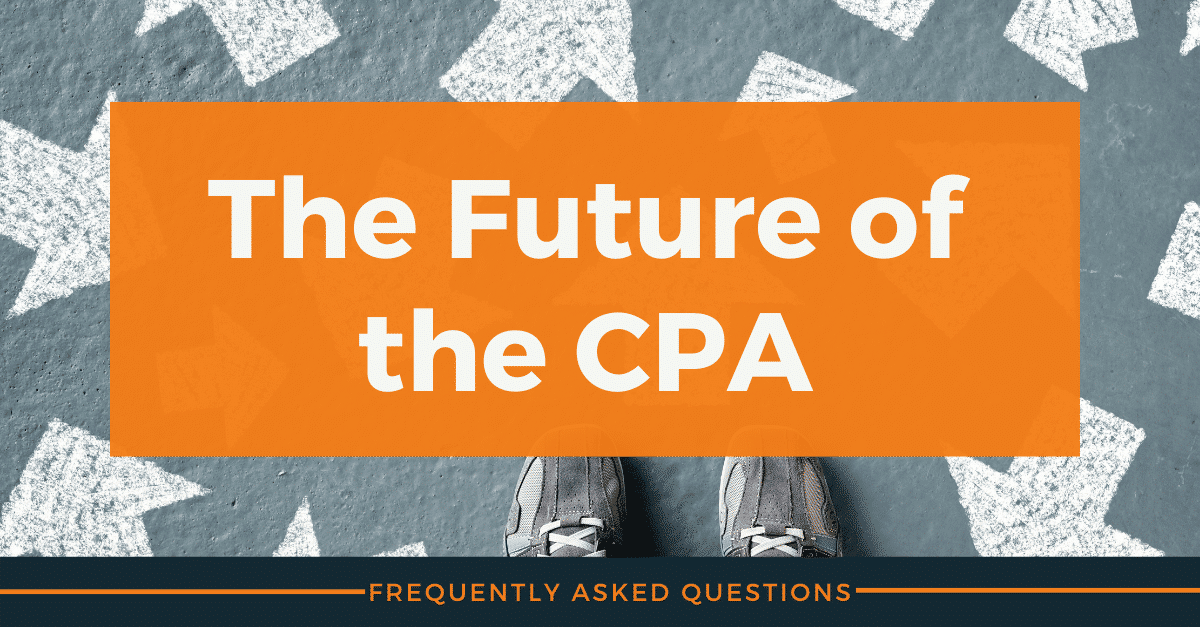It’s no secret that the accounting profession is changing and with it, so is the future of the Certified Public Accountant (CPA).
Whether it’s the rise of blockchain, or new business environments for entry level roles at accounting firms, CPAs are going to experience the lot of it in the years to come. So it’s understandable that candidates might be unsure of what their future with a CPA license holds.
That’s why we asked Liz Kolar, our Chief Knowledge Officer at Surgent, to put her more than two decades of experience to work and answer a few questions about the future CPA, and how these changes might affect the CPA Exam and candidates. Take a look at her answers for yourself.
What is your prediction for how the entry level job role of a CPA will change?
The entry level CPA role has already changed to a point where first year staff are doing the work that as recently as 10 years ago was being done by second- or third-year staff and seniors. Going forward though, entry level accountants in the CPA profession will be much more involved in the soft skills and communication side of accountancy – performing qualitative risk assessments and interpreting the results of statistical tests and communicating those results into terms less analytical minded clients and team members can understand. First year staff typically want accounting to be black and white – most of their work will not be in the grayer areas.
How has the education for accounting students changed in recent years?
Accounting, information technology, and data analytics / statistics used to be three unique tracks. Students could elect to focus on any of the three independently or in some combination. Now they are all just part of accounting education. Accounting professionals need to be well versed in accounting, accounting systems, data analytics, and have at a minimum, and understanding of statistics and statistical methods. Technology and analytics are no longer a part of accounting – they are accounting.
How does the changing education relate to the changing face of the industry?
Education for accounting students in the United States mirrors the industry. The industry has become more complex and more data driven and the curriculum for future accountants is moving to meet the industry where it is.
What additions or changes to the CPA Exam, if any, do you foresee in the near future?
We already know Excel and more analytical skills will be added in the current year. Aside from that, we expect the CPA Exam to continue to move to a more holistic testing approach where the questions (particularly simulations) will require the user to have strong fundamentals, accounting knowledge, and possess the abilities and use of tools to apply that knowledge to various scenarios. For example, students won’t just have to know how to account for a bond. They will have to know what documents are needed, how to use the documents, how to model the bond amortization in Excel or some other platform, and how to explain their accounting in a technical manner.
How do you expect the CPA Exam to change with the addition of digital trends like cryptocurrency?
Accounting professionals/CPAs must possess critical thinking and problem solving skills and must have a digital mindset. The exam will continue to evolve to ensure that CPAs can operate in a data driven environment.
Historically the FASB has been slower to adopt new instruments or assets until they become more pervasive. Given that consideration, the exam will first change to test the concept or general understanding of these trends – likely in less technical exam sections such as BEC. The financial accounting or recording will follow later, when the trends become more pervasive.
What are your top three tips for new grads heading into their first job?
-
- Work hard, be on time, say yes to new challenges, pay attention to details.
- Don’t be afraid to ask questions. You aren’t expected to know everything and you will not know everything. Find more efficient or effective methods of solving problems. Add value to your clients and your internal teams.
- Take notes. You can’t remember everything said to you and will need that resource to go back days, weeks or months later when the same topic reemerges.
Join us next month for the next installment in this series of our experts answering frequently asked questions. Got a question you’d like answered? Send us a message on our social media platforms, or post using the hashtag #SurgentsFAQ and we’ll try our best to get you an answer!





